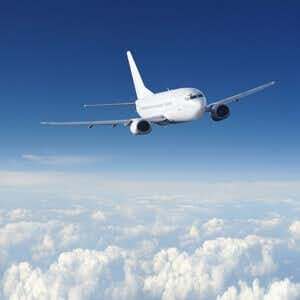
A new study suggests that flight attendants may be at significantly higher risk of developing cancer than the general population (Environmental Health, June 26, 2018). This was part of the Harvard Flight Attendant Health Study. The conclusions by the authors: “We observed higher rates of specific cancers in flight attendants compared to the general population, some of which were related to job tenure.” What are the implications for frequent flyers?
The Reason for the Study:
The researchers point out that flight attendants have been understudied even though they are exposed to a variety of health hazards. What are the challenges of working in a flying boxcar:
- Constant exposure to cosmic ionizing radiation
- Poor air quality in the cabin
- Night shift work (circadian rhythm disturbances from many time zone changes)
- Irregular schedules
The Results of the Study:
The researchers asked flight attendants to fill out health surveys. The results were compared to information from the general population.
The findings:
“We report a higher prevalence of every cancer outcome we examined among cabin crew relative to the general population, including breast, uterine, cervical, gastrointestinal, thyroid, melanoma, and non-melanoma skin cancers.”
One interesting observation was that the longer the flight attendants had worked, the greater the risk of skin cancer. There was also some association between female flight attendants, job tenure and breast cancer.
The authors conclude:
“We have conducted a large and comprehensive study characterizing cancer rates among U.S. cabin crew relative to the general U.S. population, which adds to the relatively sparse literature regarding cabin crew health and has included profiling a wide range of cancers. Consistent with previous studies reporting on cancer incidence and mortality among flight attendants, we report a higher prevalence of breast, melanoma and non-melanoma skin cancers (comprising basal cell and squamous cell carcinomas) among this occupational group relative to the general population. This is striking given the low rates of overweight and smoking among flight attendants in our study population, which we take to be indicators of general health and healthy behaviors, as well as being independent risk factors for some cancers.”
“Our finding of a greater prevalence of breast and skin cancers among flight attendants is consistent with most of the epidemiologic literature on this topic to date.”
“Ionizing radiation is a known causal factor for non-melanoma skin cancer and breast cancer…it should be noted that cabin crew have the largest annual ionizing radiation dose of all U.S. workers. These exposures can easily exceed guidelines released by the NCRP or the International Commission on Radiological Protection.”
The People’s Pharmacy Perspective:
Most people do not consider the environmental hazards of air travel. The biggest concern seems to be centered around crashes, even though the track record of the airline industry is amazing. We are told, correctly, that driving to and from the airport is far more hazardous than flying, when it comes to crashes,
But there are other risks to flying. Cruising altitude is generally around 35,000 feet, though sometimes a transcontinental flight might go over 40,000 feet. That’s around seven miles high.
Cosmic Radiation:
All of us are exposed to small amounts of cosmic radiation on the ground. It comes from outer space. At seven miles, however, the exposure is greater. The air is “thinner.” Ionizing cosmic rays go right through the hull of the airplane.
The CDC says a flight from the east coast to the west coast is less than one chest x-ray. Another expert compares it to about eight dental x-rays.
That seems trivial. An NPR story on cosmic rays offers this analysis:
“If you take a Geiger counter with you on your next flight, you’ll notice the dial ratchet up as the plane approaches cruising altitude. Every time you fly, you get zapped by a little extra radiation from space. It goes right through you, in teensy amounts. It’s usually nothing to worry about, even if you’re pregnant.
“But for people who fly a lot — like the plane’s crew — that sort of exposure might, in rare instances, amount to something.”
“Research published Wednesday in JAMA Dermatology (January, 2015) shows that pilots and other air crew members have ‘approximately twice the incidence of melanoma compared to the general population.’ The study’s authors say that difference might be partially due to in-flight exposure to UV and cosmic radiation.”
What About Frequent Flyers?
As far as we can tell, there has been little, if any, research into the impact of cosmic ionizing radiation or other air cabin risks on frequent flyers. Most people who make several trips a year are unlikely to experience any additional health risks from those trips.
Some frequent flyers, however, are in the air almost every week and sometimes multiple times a week. They may log more inflight air hours a year than the average pilot. One frequent flyer is reported to have logged “18 million miles of air travel on United Airlines over the last 14 years” (Scientific American, June 8, 2017).
Is that a risk? If so, how big a risk? No one really has a good answer. The author of the Scientific American article calculates a tiny risk (“one chance in 200 of getting cancer”).
Of course we will never know for sure unless high-quality epidemiology is done on both frequent flyers and airline personnel. In the meantime, we suggest that “regular” flyers not worry. If, however, there are reports of a solar flare that could increase the dose of radiation, you might want to reschedule until the extra ionizing radiation has passed by planet earth.

